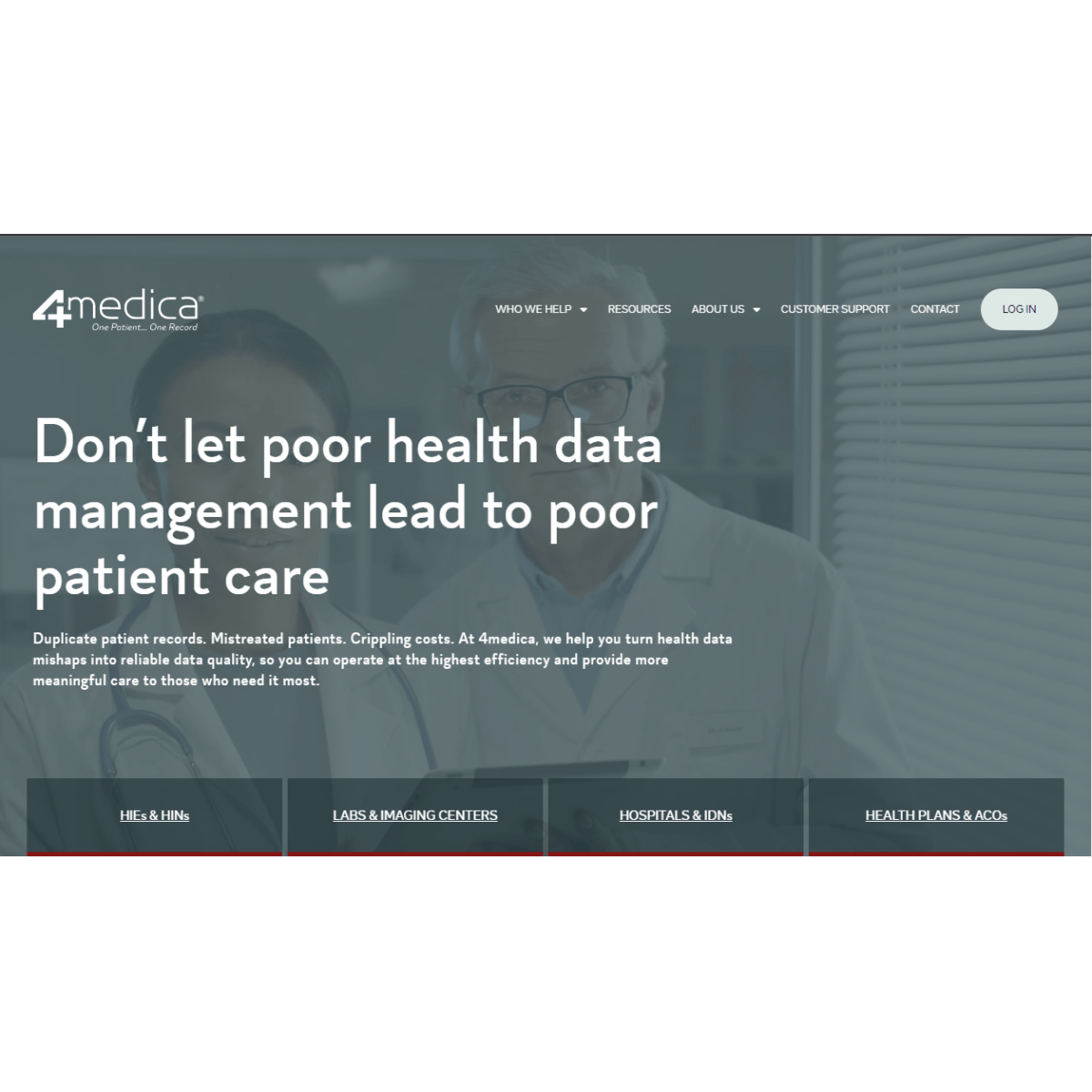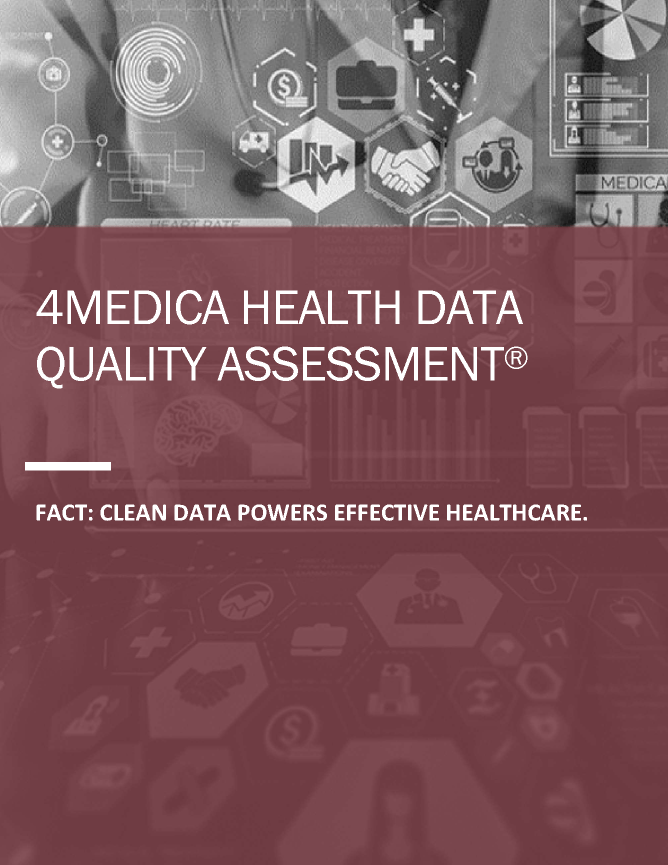Significant Patient Record Duplication Rates Still Plague Healthcare
MARINA DEL REY, Calif., March 8, 2022 –4medica®, a leader in healthcare data quality and patient matching technology, announced that they have renewed their focus on healthcare data quality in 2022 through a new website, branding and continued efforts to improve data quality in healthcare.
Duplication rates for patient records remained high throughout 2021, ranging from 10% to as much as 30% depending on the healthcare organization, according to data gathered throughout the year from the company. Excessive patient record duplications cause confusion for health information exchanges, provider organizations, payers and laboratories. This can lead to patient identification errors, delays in treatment, redundant tests and procedures, misdiagnoses and claims denials. The result is an inefficient healthcare system that wastes billions of dollars, jeopardizes the health of patients, and contributes to clinician and support staff burnout.
Patient data quality has an impact on all healthcare stakeholders. That’s why 4medica’s focus is on providing hospitals, health systems, health information exchanges (HIEs), labs and imaging centers, health plans and accountable care organizations (ACOs) with the technology tools to ensure their patient data is clean and contains few or no duplications. This goal is reflected in 4medica’s company tagline: One Patient…One Record. Furthermore, patients want to be engaged in their healthcare journey, and the company recently launched the 4medica 4health.me app, which further extends the company’s direction to be a “One Patient…One Record…One App” health data quality platform.
4medica routinely conducts health data quality assessments for existing and prospective customers, whose master patient index (MPI) data is run through 4medica’s AI-based analytics platform. The data from 2021’s assessments indicate healthcare organizations continue to be plagued with excessive levels of poor data quality.
“We’re not seeing anything less than a 10% duplication rate,” said 4medica President Gregg Church. “The healthcare industry overall still struggles to correctly identify patients. In 2022, we are refocused and reenergized on our assessment process, which drives home the point to healthcare organizations that health data quality must be a top priority.” As health care organizations want to improve patient engagement, poor data quality makes it extremely challenging to proactively engage with patients. 4medica offers a unique way to improve data quality by furthering enriching missing demographic and SDOH details through a powerful referential matching and data enrichment service.
COVID-19 created a surge in demand for tests and care that overwhelmed labs and providers. In organizations with low patient data quality, this inevitably led to patients getting test results far later than expected or not at all. For many large healthcare organizations, one of the major lessons of the pandemic was that they not only must be able to exchange patient data easily and securely, but the data must also be of the highest quality, as free as possible of duplications and other mistakes.
With a technology platform that addressed an urgent need, 4medica experienced impressive growth and customer successes in 2021. The company now provides real-time clinical data management and interoperability software and services for 10 state HIEs – including exchanges in Idaho, Michigan and New Jersey – out of nearly 80 across the U.S. In addition to the data quality assessment, 4medica can provide data cleanup and normalization services to its customers while enabling cloud-based clinical data exchange.
One customer, the Idaho Health Data Exchange (IHDE), had a 18% patient data duplication rate as recently as two years ago. Since implementing 4medica’s Big Data MPI software and “1% as a Service,” IHDE has seen its duplication rate fall below 1% – a change that not only improved efficiency, it turned around the HIE’s finances.
“We weren’t generating enough revenue from customers to sustain our business,” said IHDE Executive Director Hans Kastensmith. “Improving the quality of our health data also increased its value and allowed us to offer more to insurers and ACOs, giving us another revenue stream.”
Another customer, the New Jersey Innovation Institute (NJII), struggled with matching accuracy, performance and speed using its previous MPI data management platform. An assessment of patient data run through 4medica’s Big Data MPI uncovered a high duplication rate among 12 million previously mis-matched identities. Since converting to the 4medica health data quality platform, NJII has successfully merged duplicate identities across multiple data sources, and continually increases the value of the data by applying AI/Machine leaning prediction and data enrichment.
“With multiple state health registries together processing more than 12 million identities, excessive duplication rates quickly can turn into a clinical and operational nightmare,” said Jennifer D’Angelo, NJII senior vice president and general manager of its healthcare division. “Now we can be confident that our data is of the highest quality, in whatever repository it resides.”
As we continue into the new year, 4medica will continue to help current and prospective customers understand and leverage the clinical and operational benefits of health data quality.

